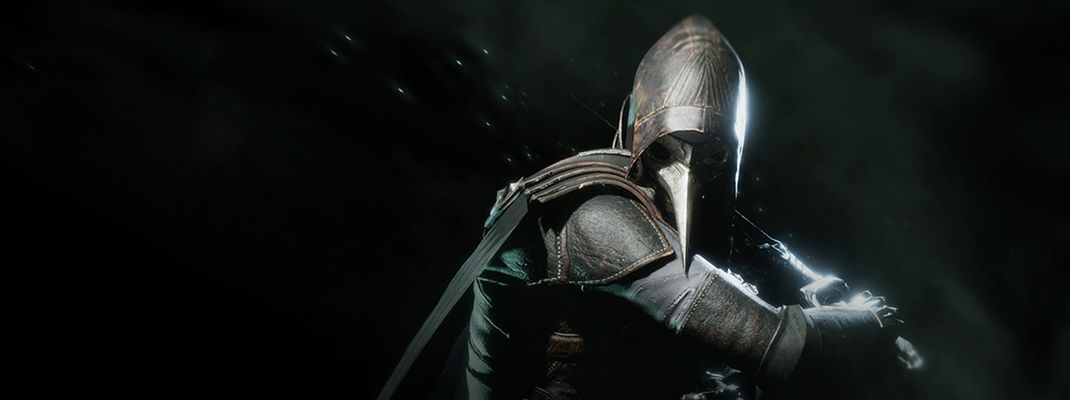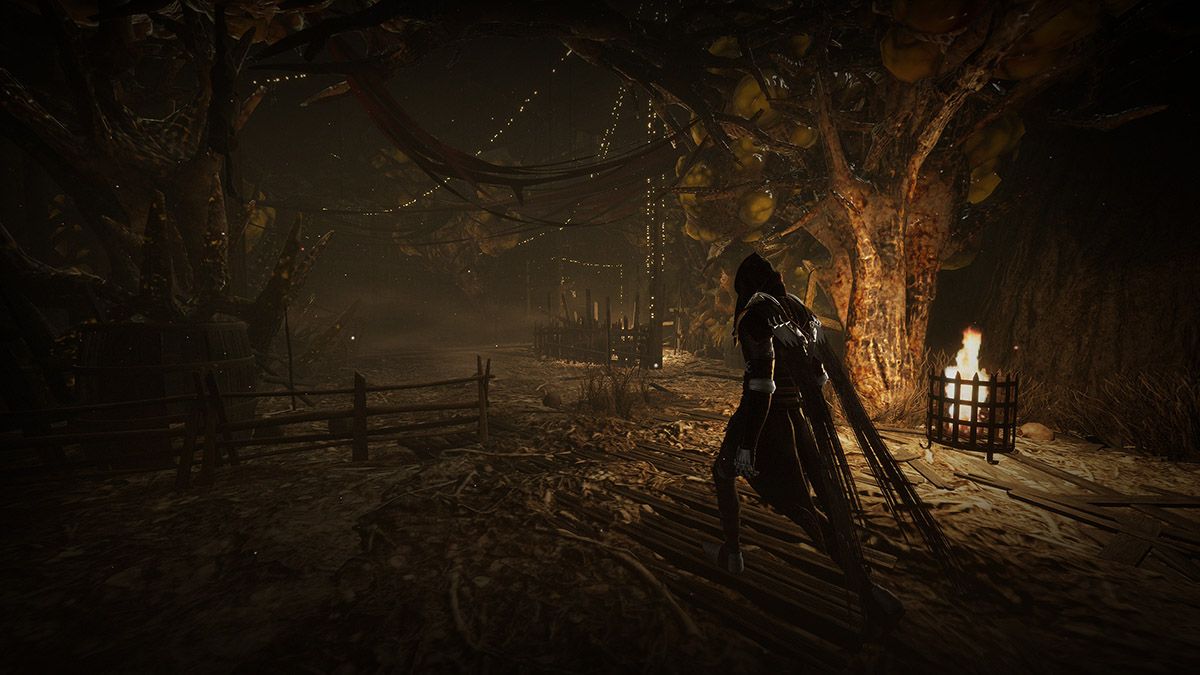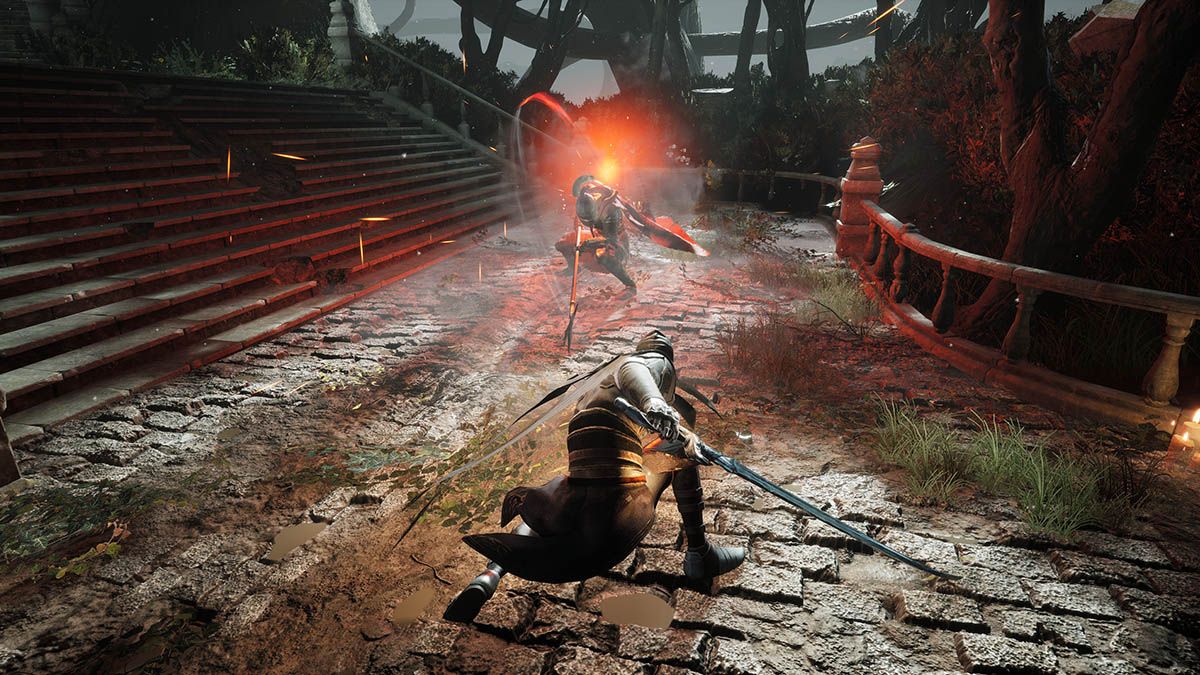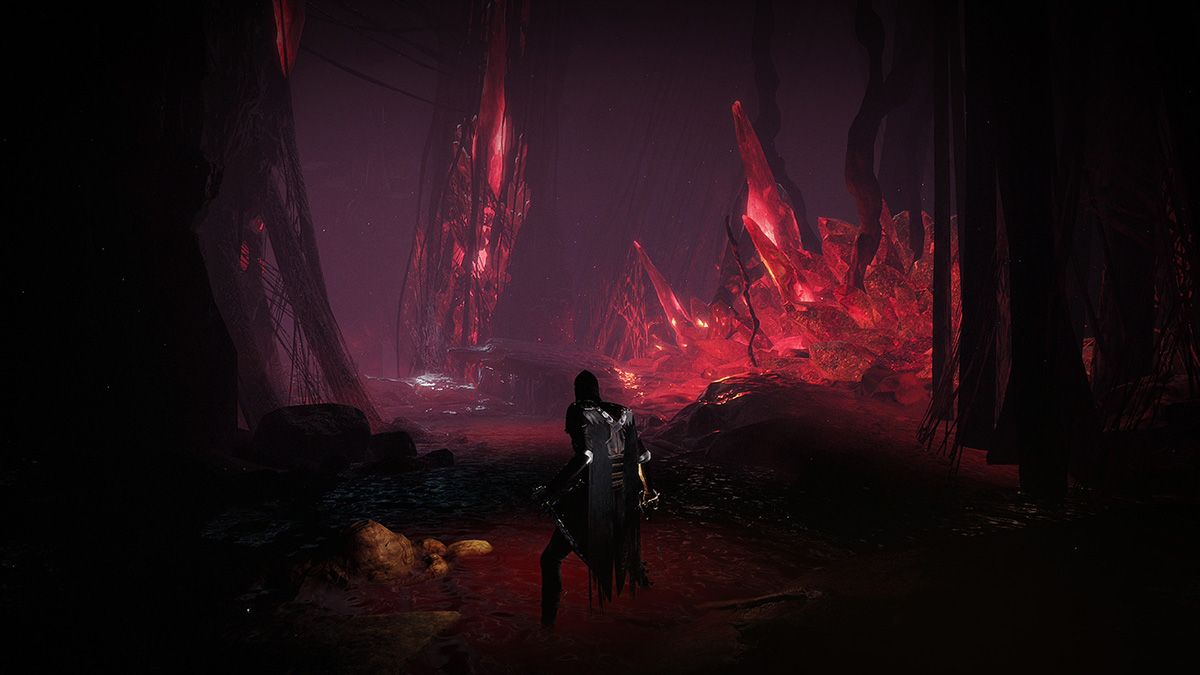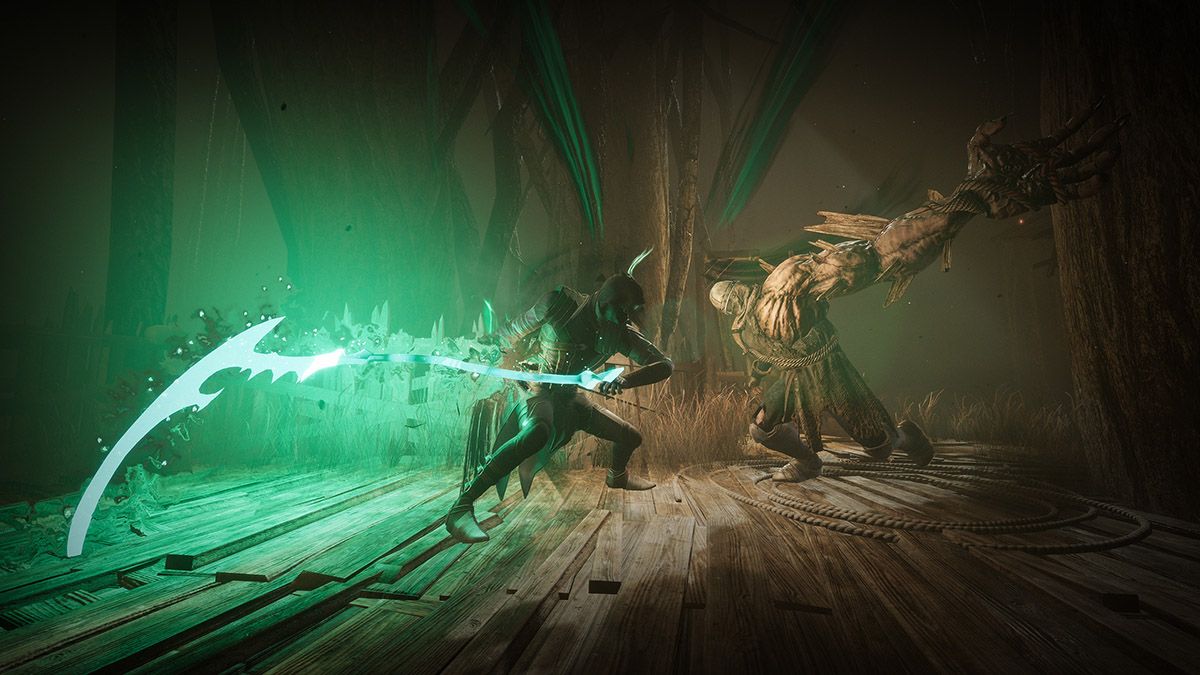Something something imitation is this and that -- I'm sure you know how that fabled saying goes. And perhaps there's a likely market -- one with a sufficiently-sized community at its heart -- to explain why we're bound to see year after year of these kinds of games release, regardless of scale, style and most importantly, lasting substance. At a time where the very studio responsible for bringing us this template have gone and altered (maybe improved, if such is your view) said premise all over again. Love it or loathe it, the Soulslike sub-genre is here to stay. Yet for every platformer or RPG with a desolate attire, translucent form of narrative and emphasis on getting one-over that annoying road-block that's put you down a dozen attempts prior, there will always be that burning question in the back of your mind: "OK, but what else is there?"
Not to knock the time and effort put into any one of these creations, be they 2D or 3D alike -- side-scrolling, platform-hopping affairs or semi-open, role-playing experiences -- but familiarity will only get you so far. Less so if that sense of inspiration is perhaps being used more so to underscore a game lacking in some original spin on such conventions. It's why a game like The Surge, as disappointing the final release was after such a promising early period, I can recall more so with respect, as opposed to whether it was ultimately a good or bad product full-stop. A game that at least was trying new ideas, new means by which players could actually wrestle with the prospect of victory -- that's without mentioning the tone of fiction was more scientific than fantastical there.
Yes, miracles can happen. For every five-or-so releases that are, at best, modest distractions for a time, there are games like Eldest Souls. Games that may well be sticking to the same thematic script, but more importantly aren't afraid to break from gameplay convention and for a time, be original for once. Original not so much in the sense of what one needs to accomplish, but how one accomplishes it. A new set of rules dictating how proceedings will likely play out, there to get accustomed to. But maybe the "how," if you will, is where a game like Thymesia is more likely to find its stride. Especially if there's no budging from the choice of art-style, setting and means by which a story is told directly here (or not told). But if that wasn't enough of a cautious introduction, you then have the revelation as to how developer OverBorder Studio have crafted their own form of gameplay. Or as the case may be: grafted it -- Thymesia resembling more so a compilation of FromSoftware's "greatest hits" in so far as what it is about the likes of Demon's Souls, Dark Souls, Bloodborne and even Sekiro, that has impressed so many over the years.
Such is the introduction to Thymesia, you can almost feel the need to begin listing all the blatant mechanical inspirations and general design decisions that feel lifted from out From's playbook -- their many playbooks -- and into this game. The linear (albeit housing tucked-away secrets and tempting encounters along the way) sectioned-off levels of Demon's Souls. Our familiar set-up of killing enemies to net you currency with which you can use to level up your character, strengthen your weapons and even upgrade the potions which, as usual, serve as your only means to survive and stay alive throughout the series of more -- the trend Dark Souls helped populate. But then you have the fast, frantic emphasis on actively engaging in combat close-up that Bloodborne brought. And if that wasn't enough, a combat system that rewards parrying and punishes you (perhaps, to include a slight nitpick in amongst this, a tad too much all things considered) for not getting out of the way of an enemy's critical, unblockable/unavoidable strike a la Sekiro. No staccato-like shriek of a string to denote said attack, but a glow of green above an enemy's head is your indicator here. From this alone, Thymesia sounds a tall order and one OverBorder looked to have bitten more off than they can necessarily chew at one time. One too many ideas that in the past were all serving some subtle variation on the formulas preceding. Together they should not work...but oh how wrong does that anxious first impression quickly become.
Granted, Thymesia isn't the most fluid action RPG to control. Nor is it one that doesn't throw up a questionable hit-box here and stiff movement there, to at least reign in that introductory positive surprise. Even more egregious is the natural progression by way of its main, story-oriented bosses. To say Thymesia's difficulty curve is a little all over the place would be an understatement; around a dozen efforts to get past the first major end-of-level boss, to then beat the secondary equivalent on first try? Something is clearly not right and I'm humble enough not to pretend I've somehow accrued that amount of competency with the game in so little time. In short: while there are plenty of unique encounters and accompanying attacks patterns to memorize and time one's attacks to throughout, don't be surprised at a few unwarranted and technically-questionable brick walls put in your way. And ones wherein it seems you're wrestling as much with the controls as you are the foe (or three) put before you.
Temporary frustrations aside, however, it should then only shine a brighter light on just how well Thymesia does at convincing you its combat system is one to invest in that these mild annoyances quickly fade into the backdrop. Part of that lies with how well OverBorder manage to weave in moments of dodging, parrying and balancing that flight-or-fight dynamic that a majority of encounters will eventually [d]evolve into. But the biggest and most prominent factor is what the game is here providing as its own signatory mechanic. At its most basic level, combat is the usual forte: you have your standard light attack with your sword, with an accompanying dagger used as your parrying tool -- which can later be upgraded to use as a make-shift shield to lessen damage. The difference here is that regular attacks don't actually deplete an enemy's health bar as one usually would. Instead, successful hits divide that allotted health between the standard white shade and an increasing green half next to it. You can dish out a successful string of strikes, all while dodging everything coming your way, but you still can't kill the enemy before you. What then? Well here's the trick: that slither of green can only be depleted if you will by slashing at the enemy with your accompanying Claw Attack. A move that acts on charge-up that if successful, properly removes said health from the enemy. Fail to do so or simply play it too safe and the enemy's health bar will return to its former full state in no time -- that slither of green and accompanying opportunity fading away. And yes, this goes for major boss battles as well. Worse, you the player-character do not have this luxury, your health-bar is very much the regular run-of-the-mill get hit/take damage sort.
Though simple -- and admittedly runs the risk of over-complicating even regular combat -- it's an effective alternative to encouraging players to stay in the fight. What's more, your Claw ability isn't just some obligatory, tacked-on extra step to inflict damage. While a short charge can sufficiently take that health away, a full charge -- requiring you to leave yourself potentially wide open -- will result in you acquiring a temporary weapon art of sorts from that enemy. A foe is wielding a lance? Strike them with a charged Claw and you too gain a one-time use Lance that can inflict extra damage. What's more, upon resting at any number of the checkpoints, will also allow you to equip a permanent weapon skill that is fully functioning providing you have the energy to feed it. Theoretically one could just play it safe and alternate between light standard and Claw strikes, but given how useful later Arts can be -- not least that can grant temporary buffs/ailments to one's weapons -- and how engaging with their associated enemies nets you materials to further enhance their properties.
While Thymesia may not be the most expansive RPG when it comes to build variety or item usage, the game makes up for this in its skill-tree wherein there are upgrade paths for a surprising number of one's base abilities. Everything from your regular attacks, your Claw ability, even your defensive/dodging skills and parrying can be improved and added to with additional skill-sets and button inputs. Again, a minor feature that if anything, will only entice players to up the stakes when it comes to dancing with probable death. Not least when you eventually acquire the ability to avoid, even counter seemingly unavoidable Critical attacks. It's the most dexterous and versatile Thymesia gets in its customization and while it may not be as apparent as something like different weapons to equip or armor to wear, there's a more-than-sufficient wealth of options to help properly tailor one's desired combat style. It only took me a couple of hours before the pace of combat became second nature and that deliberate speed was then used to my advantage through increased upgrades further down the path. Perhaps it's one's favoritism to the feel of combat in a game like Bloodborne or Sekiro, but it didn't take long for the core loop of Thymesia to properly and wonderfully click. Its to-and-fro sway between fast strikes and well-timed parries, so satisfying to get right and get through eventually unscathed.
It's just unfortunate that on top of the alluded-to technical blips from time to time, Thymesia isn't the complete home-run OverBorder may have been hoping for. Ironically enough: it's the studio's other, unique wild ideas they try sprinkling in amidst the madness, that don't feel as well-tuned or to put it bluntly, that fun to trudge through again and again. Namely the insta-kill attacks that act as an extension to enemy Critical's. Specifically in boss fights when windows of opportunity are so small and enemy tells as to what attack is heading your way are too vague to do anything other than manically spam the dodge button. Sure, die enough times and you will eventually get accustomed to patterns and move-sets. Eventually being able to parry a string of attacks so you can get a helpful Claw strike in -- better still, get through that first phase without having to use a single health potion. But just as there are as many well-balanced instances of risk and reward, so too Thymesia unfortunately overthinks its own notion of difficulty -- mistaking immediate punishment for challenge.
Closing Comments:
Even with these blemishes and moments where the admiration for what's come before gets in the way of basic consistency and much-needed fluidity, OverBorder Studio have at least landed in a much better position with a foundation that's challenging and entertainingly so. Indeed, Thymesia has no qualms with letting its inspirations show in blunt fashion, to the point OverBorder's creation for a time feels like it's all too worryingly becoming less its own unique take and more a greatest-hits compilation ready to implode in on itself at any moment. It would be easy to dismiss Thymesia as exactly this: references and call-backs but with none of the unifying vision -- a slap-dash repackaging of the Souls series' high's in an attempt to see what sticks. But perhaps the biggest surprise coming away is that against all odds this synergy of a literal decade-plus of ideas somehow manages to be as compelling as it is. And while Souls series veterans will get the most out of recognizing and respecting the impossibility of OverBorder's approach here, Thymesia above all else still asks new, fresh and strategically-minded questions as to how to tackle the eventual onslaught. A rarity among this overly-saturated market. But it's that small yet critical tweak to the formula, despite its familiarly-decrepit backdrop and far-from-grandiose stature alike that makes Thymesia one of the more memorable and mechanically-satisfying Soulslikes of the bunch.

